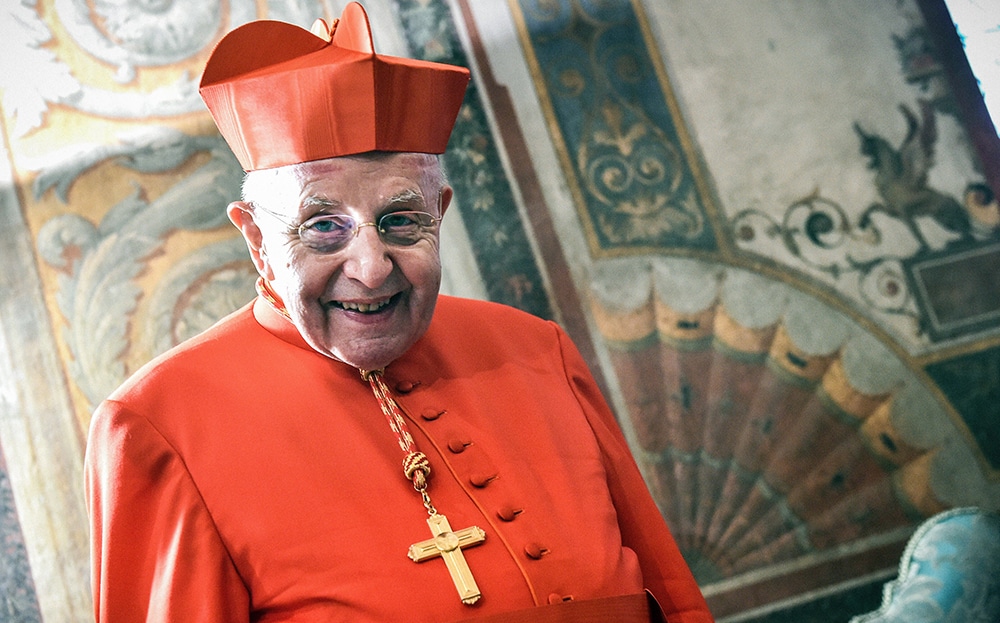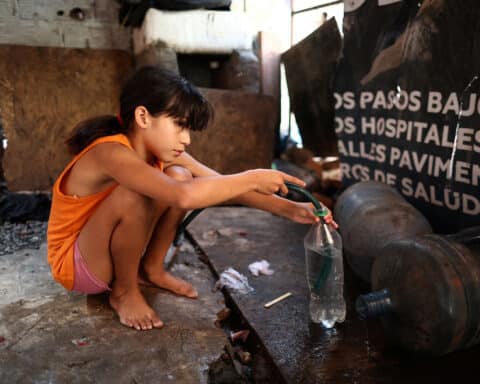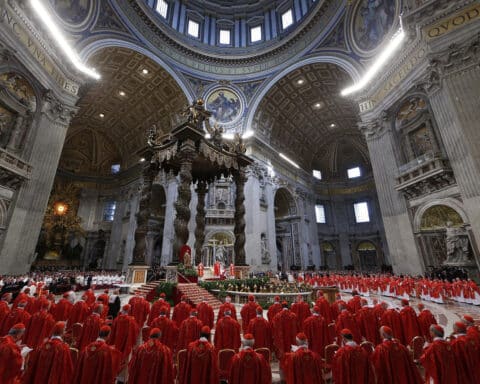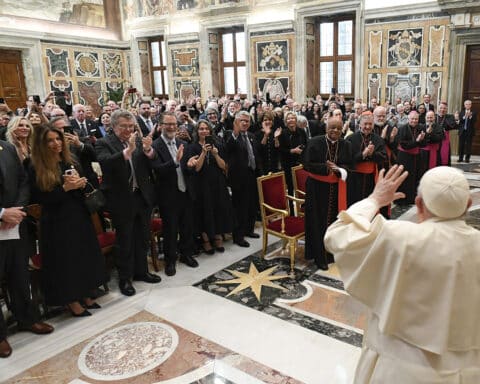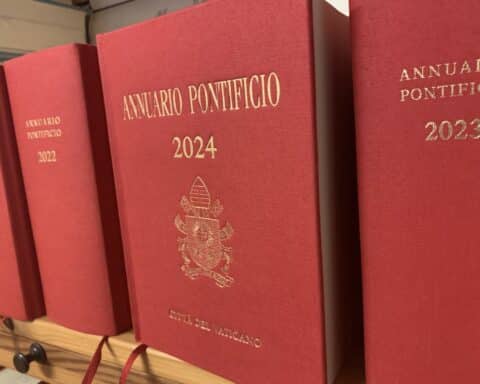VATICAN CITY (CNS) — German Cardinal Karl-Josef Rauber, a longtime Vatican diplomat, died March 26 in Rottenburg, according to the Schoenstatt Sisters in Rottenburg-Ergenzingen, where the cardinal lived and ministered in his retirement.
The cardinal, who had served as president of the Ecclesiastical Academy, where Vatican diplomats are trained, was 88 years old when he died.
Born April 11, 1934, in Nuremberg, he was ordained to the priesthood for the Diocese of Mainz in 1959. Three years later, he was sent to Rome to begin studies at the diplomatic academy and to earn his doctorate in canon law from the Pontifical Gregorian University.
From 1966 to 1977, he worked in the Vatican Secretariat of State, eventually heading the German-language section. Sent into the field, he worked at Vatican nunciatures in Belgium, Greece and Uganda.
St. John Paul II ordained him a bishop in early 1983, shortly after appointing him nuncio to Uganda, a position he held for seven years. In 1990, he became head of the diplomatic academy.
Later he served four years as nuncio to Switzerland and Liechtenstein, six years as nuncio in Hungary and Moldova and six years as nuncio in Belgium and Luxembourg. He retired in 2009 at the age of 75.
The Italian version of his Vatican biography said that in various postings as nuncio “he faced difficult challenges for the Church: in Uganda, for example, he carried out his work during the years when AIDS broke out and spread, with devastating consequences for the population; in Switzerland he collaborated in smoothing out the tensions involving the Diocese of Chur and Bishop Wolfgang Haas; (and) in Hungary he managed the phase of mending relations between church and state after the communist era.”
In the case of the Diocese of Chur, St. John Paul had appointed Bishop Haas to the diocese in 1990, but the appointment was opposed publicly by many of the diocese’s clergy and laity, who accused him of being a conservative autocrat. As the protests continued, in 1993 St. John Paul named Cardinal Rauber his envoy to Chur in the hopes of finding a solution.
Several months later, St. John Paul appointed two auxiliary bishops for the diocese with the specific purpose of helping to “re-establish full communion” in the diocese. Relations worsened to the point that the pope replaced Bishop Haas in 1998 and moved him to an archdiocese in neighboring Liechtenstein.
Pope Francis made him a cardinal in 2015.
Cardinal Rauber’s death leaves the College of Cardinals with 222 members, 123 of whom are under the age of 80 and eligible to vote in a conclave.

